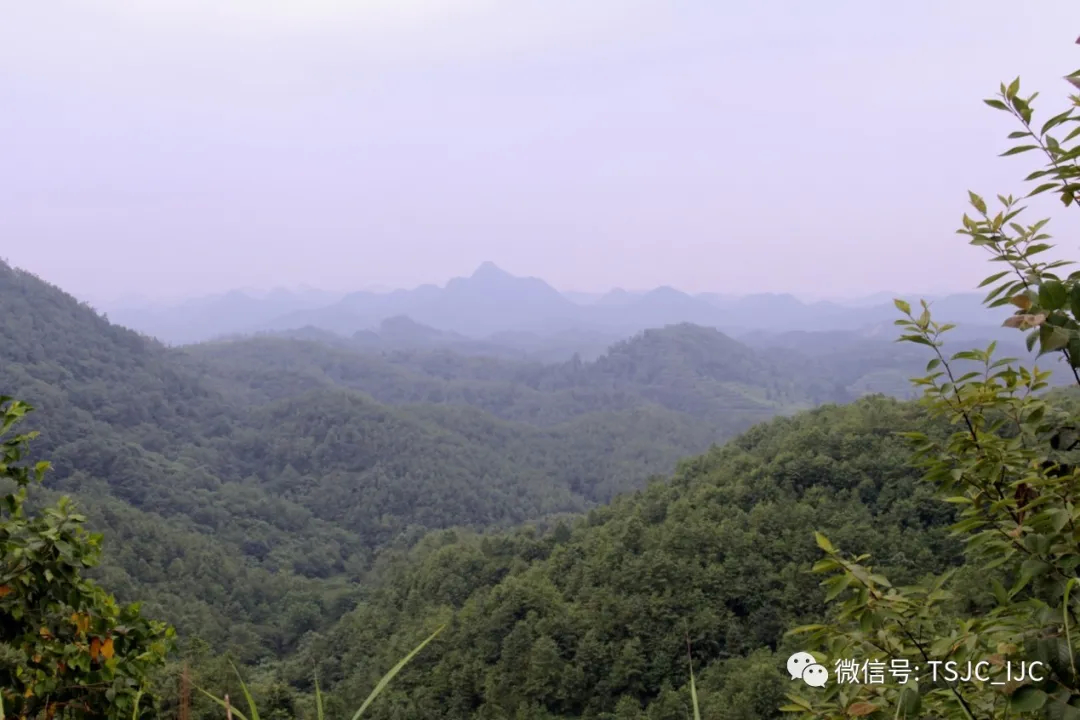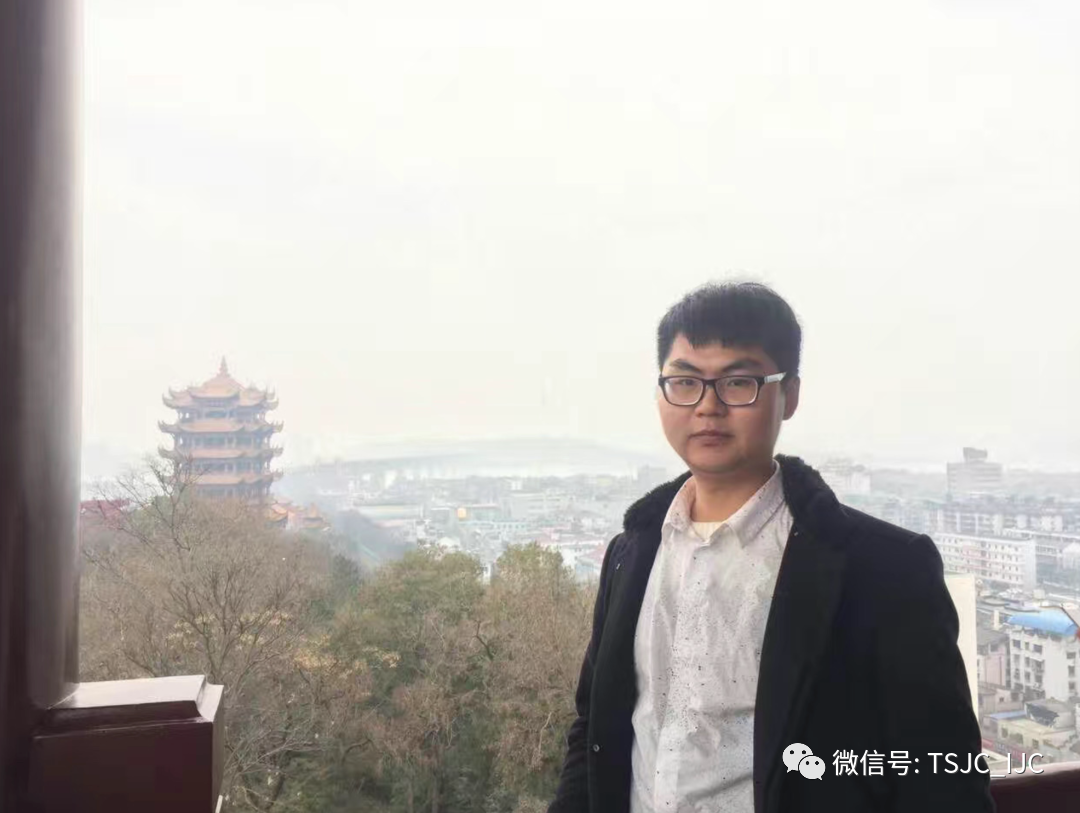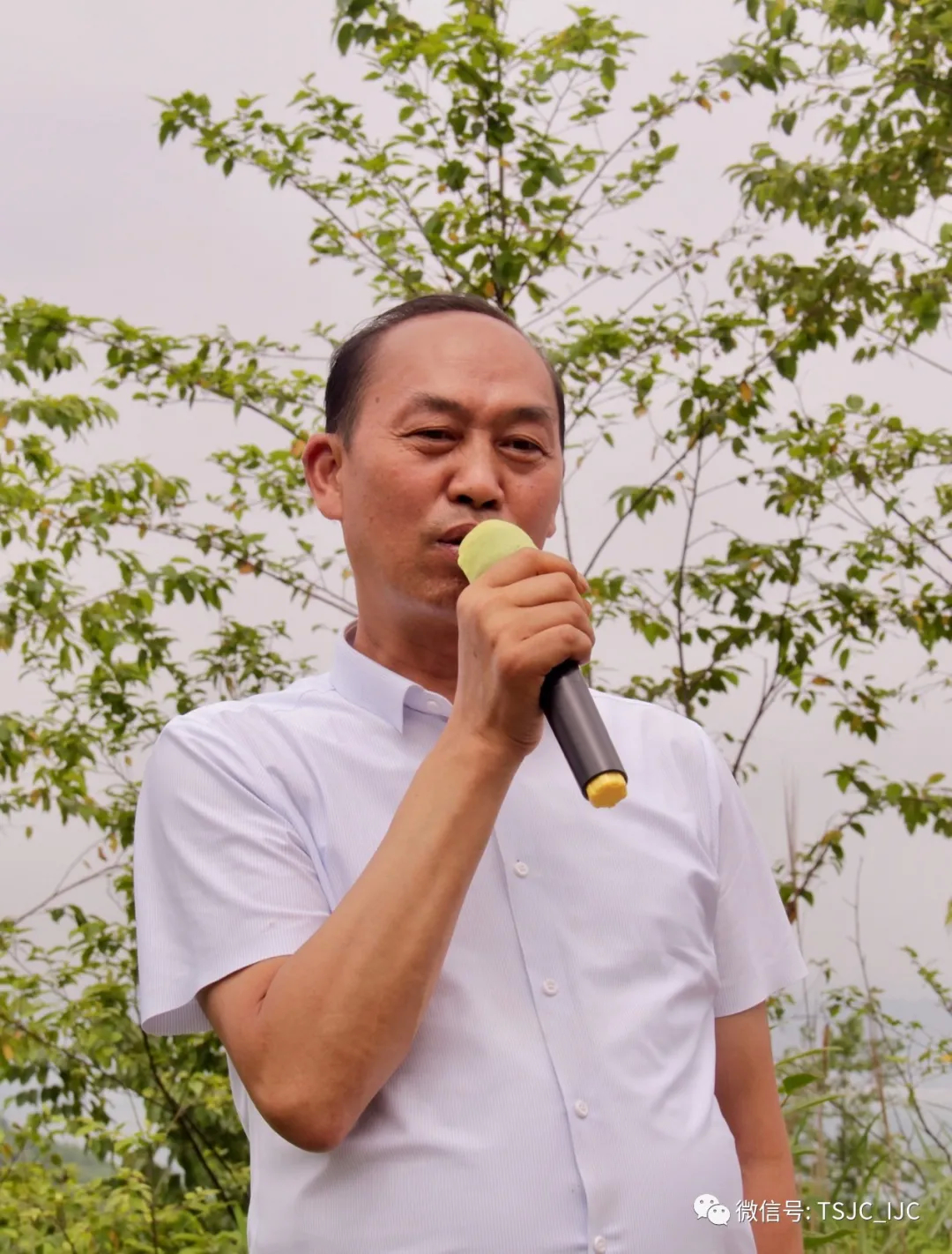22
2021.06
With a warm smile, Ren Yunhu enthusiastically introduced Huangjing Tea to visitors, which is a drink made mainly from the Chinese medicine Polygonatum. With his dark skin and rich knowledge of traditional Chinese medicine, it would be hard to imagine that Ren is a 29-year-old man with a bachelor's degree in automation.
Ren runs the Medicine King’s Valley, a herbal plantation covering an area of more than 8,000,000 square meters, with his family. The plantation employs 83 full-time workers.

Medicine King’s Valley, Photo by Li Yaoqi
Return from the Capital to isolated Hometown
Every day, when Ren leaves his house, he sees green mountains filled with the fragrance of plants, most of which are herbs they grow and cultivate for their medicinal value.
But eight years ago, when he was an undergraduate in Beijing, he saw the busy streets, the hurrying crowds, everyone living a fast-paced life, compared to the peaceful life in Medicine King Valley now, it seemed like another world.
"After coming home, it feels like the whole pace has slowed down." Ren said, "The most obvious difference is the air, it’s very fresh."
Since junior high school, Ren has been helping out at Medicine King’s Valley. Still a teenager, he has been able to distinguish the types of herbs, and under the influence of his father, Ren Tingzhou, who is well versed in Chinese herbal medicine, Ren Yunhu has a good idea of the efficacy of various herbs, knowing which herbs are suitable for the stomach and the kind of herbs he should recommend to those who have recently caught a cold.
Initially, Ren decided to leave Anshun and go to Beijing to study automation because he likes physics and mechanics. His initial ambition was to work in a job related to machine making, and he liked doing hand work, especially woodworking. But after arriving in the capital, he realized that the city and the major were different from what he had imagined.
"The quality of life in Beijing was so much lower than at home." Ren said, adding that he could not afford living in the capital with the meager salary.
“It’s hard for me to buy a house there and settle down," he added.
Besides, loneliness is also one of the important reasons to bring him home, where he runs the Chinese herbal medicine base with his father. The fast-pace life and the distance between people can easily make young people like Ren feel adrift in the big city.

A Photo of Ren Yunhu Provided by Ren Yunhu
In recent years, more and more young people like Ren have chosen to return to their hometown after studying in big cities. According to data provided by Liepin - a leading employment company in China - the percentage of college graduates in Beijing who are willing to stay in the capital after graduation has decreased for three years.
At a State Council’s meeting in July, last year, China proposed to support groups such as college graduates and migrant workers return to their homes to seek opportunities.
Most of Ren’s dormmates in college returned to their hometowns after gaining degrees. Also, his friends from Anshun who studied outside of their hometowns all came back after graduation. Some work in government, some start their own business, carrying different walks of life to inject vitality to local economy.
From the Old to the New
Unlike his father, who is dedicated to the cultivation and researches of Chinese herbs, Ren has set his sights on tourism, which he hopes to gain more economic benefits.
The valley has fresh air, countless Chinese herbs and beautiful views of the mountains. He is confident to turn the Medicine King’s Valley a tourism attraction. The next plan is to develop infrastructure, such as building more lodges in the valley, and developing a "farm paradise" with many alpacas, peacocks, cows and other animals to attract tourists to come.
In addition to expanding the business, Ren also wants to make his family-run base more corporate, which requires not only standardizing financial management, but also paying attention to the market, doing more publicity, and recommending the herbs growing in the valley to more people.
At the beginning, Ren encountered a lot of resistance from his stubborn father, who had been demeaning on the market management and publicity for a long time. His father only believed in the quality of medicinal materials, and thought that Ren’s enterprise management was useless. There had been many arguments between the two generations over business issues.
"He only looked at the cost and ignored that it was a long-term job, and he was against changes,” Ren said.
However, the son's contributions and achievements in business operations over the past eight years impressed the old man. Now, not only Ren himself filmed Tiktok of the Valley, open Weibo, China’s twitter-like service, using modern social media to promote the Medicine King’s Valley.
His father, who used to disdain publicity, has also started to be a "tour guide" of the Valley with his rich knowledge of Chinese herbs, holding a microphone and introducing the efficacy of different herbs to visitors.

Ren Tingzhou is introducing the efficacy of different herbs to visitors, Photo by Li Yaoqi
Despite not working in big cities or dream jobs related to machinery or automation, Ren has not forgotten his initial interests. In the Medicine King’s Valley, deep in the mountains, Ren pointed at the streetlights on both sides of the mountain road and said proudly, “it’s I who designed all these streetlights."
Reporter|Li Yaoqi

2025.12.16 15:15
16
2025.12
16
2025.12
16
2025.12
 28:32
28:32
2025.06.19 08:55